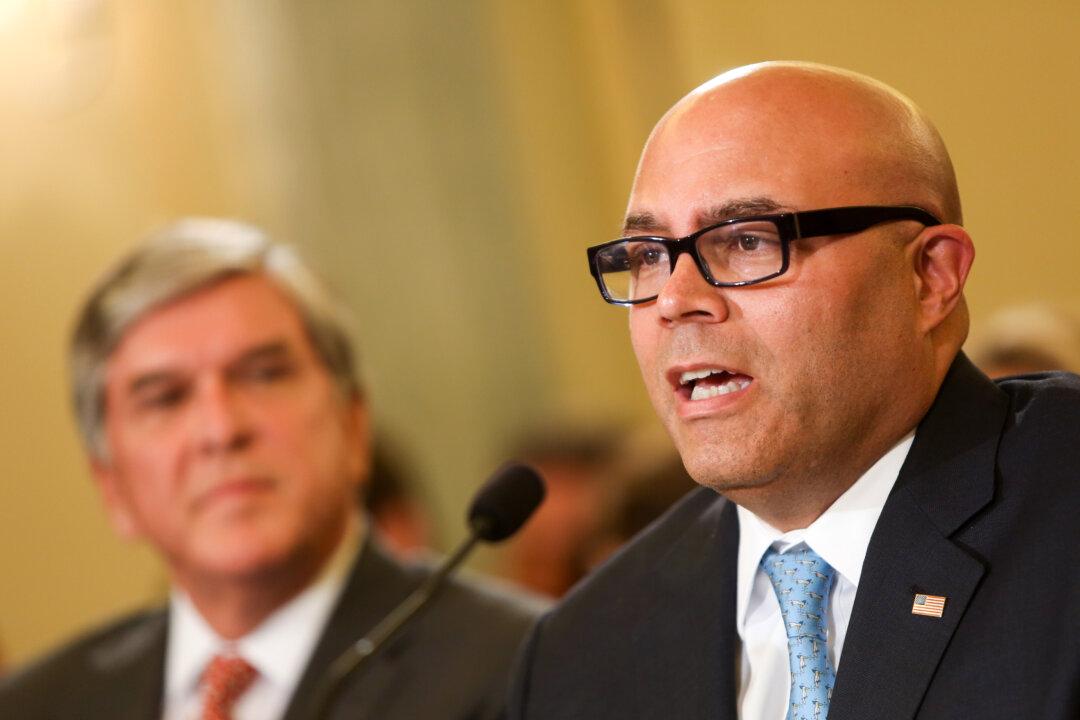Congress has drafted a bill that could enshrine in law net neutrality rules with the support of the telecom industry, but has drawn criticism from other parties for creating loopholes and restricting the authority of the Federal Communications Commission (FCC).
In February, the FCC is expected to propose new Net Neutrality rules that would govern Internet service providers akin to public-utilities. However, the legal authority of the FCC is not well established, and the new rules could result in prolonged lawsuits, insiders in the industry say.
“I don’t think it plays out completely in the next few weeks, likely what will happen will trigger lawsuits,” AT&T CEO Randall Stephenson said Wednesday on CNBC. “If history is any indicator of what will happen in the future, the lawsuits will go through a process, probably resulting in the Supreme Court.”
In November, AT&T said that it had halted the construction of fiber connections in over 100 U.S. cities because of the uncertain regulatory environment. The new bill drafted in the House would set clear boundaries on the powers of the FCC, and has been endorsed by lobbyists for the broadband and wireless industries at the public hearing before a House subcommittee.
“Any FCC decision will result in this issue being brought back to court for the third time. And while the legal challenge proceeds, the broadband industry will be left with years more of regulatory uncertainty,” said Michael Powell, president of the National Cable & Telecommunications Association, in a testimony Wednesday. He supported “the legislative solution that can finally put an end to the controversy over the FCC’s attempts to establish a regulatory framework that protects and preserves an open Internet.”
The bill would enforce many of the tenets of net neutrality, including rules against paid prioritization of web-traffic, but provides an exemption clause for “specialized services” and “network management,” which has been criticized by Amazon for providing loopholes for the broadband companies to bypass net neutrality rules.
“Any claim of reasonable network management should be viewed very suspiciously if, in practice, it undermines prohibitions of blocking, throttling, paid prioritization, etc., or if it tends to favor content or services offered by the broadband provider itself,” said Paul Misener, vice president of Global Public Policy at Amazon, in his testimony.
The bill also preempts the powers of the FCC to put broadband companies under Title II of the Communications Acts, which the broadband industry has vigorously opposed. It forbids the agency from issuing new rules under Section 706 of the Act and has been criticized for essentially stripping the agency of its regulatory powers.
“Even a more comprehensive list of harmful practices…would eventually become woefully outdated should the FCC be stripped of its ability to respond to current conditions and practices,” said Jessica Gonzalez, general counsel for the National Hispanic Media Coalition.





